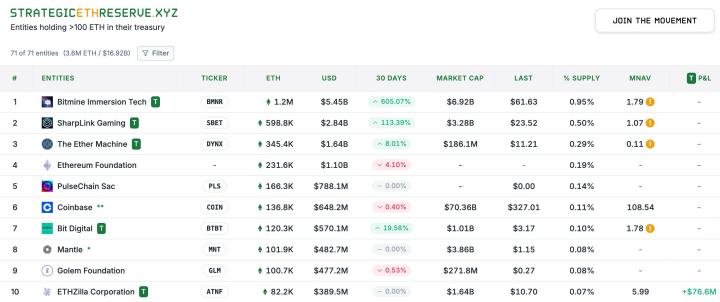In addition to personal applications, Billions has also built a B2B2C business model: basic verification services are charged per use, with advanced bank-level/biometric verification negotiated directly by enterprises; while alliance nodes in the network obtain stable income through fee-sharing mechanisms, encouraging more ecological partners to participate in maintenance and governance. In the early stages, Billions has already reached cooperation with projects such as Aurora, Avalanche, Camp, Chaincode, Clique, Intract, Lagrange, Linea, Polygon, Qacc/Giveth, SingularityNET, and Zeeze, jointly promoting the application of privacy-first identity in the decentralized ecosystem.
Balancing Uniqueness and Anonymity in Decentralized Identity
In the early days, most global identity verification schemes either relied on centralized servers storing sensitive user data or resorted to biometric identification hardware, which posed data leakage risks and were difficult to popularize globally. The Billions team pioneered an open-source zero-knowledge proof (ZK) architecture six years ago, including the Circom language and SnarkJS library, laying the technical foundation for decentralized identity. According to official announcements, as the most widely used zero-knowledge proof library, Circom supports over 9,000 projects including Worldcoin, TikTok, Galxe, Scroll, and Aptos.
After continuous refinement during the Polygon ID phase and Privado ID period, this ZK identity protocol has gradually evolved into today's Billions Network—a globally optimized identity verification system for mobile devices that does not require biometric hardware and uses passports and mobile phones as verification credentials.
In Billions' core product, the Profiles mechanism aims to solve the paradox of "difficulty in achieving both uniqueness and anonymity" proposed by Vitalik Buterin in his digital identity paper. Billions derives a unique decentralized identifier (DID) by hashing the client-side randomly generated profileNonce with the user's primary identifier (genesis_identifier), thereby achieving decentralized, globally unlinked multiple identities.
Since the nonce is completely random and generated locally, no server or issuer can track the same user across different applications, naturally preventing cross-context user profile stitching and monitoring. At the same time, this design does not prevent users from recovering their real identity through multi-party joint decryption when necessary, achieving accountable anonymity.
To balance decentralization and compliance requirements, the Billions network has introduced the Context-Based Unique Identifier (CBUID) framework, allowing unique identifiers in each application context to be derived from any type of "uniqueness proof credential" while remaining unlinkable and unidentifiable by default. This way, whether based on passport verification or potential future biometric verification, Billions can ensure the isolation of verification results in different scenarios through the same cryptographic process, while providing optional compliant credential types for various supervisory audits.

In terms of user experience, the Billions.Network mobile application is now available on iOS and Android platforms, presenting users with a simple passport + camera or passport + NFC process, with all complex ZK proof generation, DID management, and credential packaging securely completed on the client-side.
Through this end-to-end local key management, Billions not only avoids the risk of centralized database leaks but also gives users absolute control over their identity data—they can generate new Profile DIDs in any compatible service at any time or quickly rotate keys if they suspect key leakage, maintaining their security.
Extensive Ecosystem Layout, Covering Government, Institutions, and Crypto Projects
After launching Billions Network, the project team reached a cooperation with SingularityNET in March this year, jointly building a Decentralized AI Agent Trust Registry aimed at issuing verifiable identity credentials for each intelligent agent, ensuring traceability and interoperability in the emerging "inter-agent economy". This collaboration establishes transparent associations between AI systems and their creators, enabling users to quickly identify and trust the underlying entities, thereby avoiding role impersonation and responsibility ambiguity in multi-agent collaborative scenarios.
In July this year, Billions Network became the "official identity and reputation partner" of the AI security platform Sentient, providing privacy-first, composable identity verification capabilities for Sentient's model registration and operation. By integrating Billions' native zero-knowledge proof (Circom) and accountable anonymity (MPC) technologies into Sentient's audit process, Sentient can endorse the credibility of training sources, behavioral trajectories, and output results without exposing user and model training data, significantly improving the efficiency and precision of AI security monitoring and threat detection. It's worth noting that Polygon co-founder Sandeep Nailwal is a co-initiator and core contributor to Sentient.

Additionally, Billions (or Privado ID) has been adopted in multiple Proof of Concept (PoC) collaborations with Deutsche Bank and HSBC, demonstrating its scalability and reliability.
According to VentureBeat, Billions Network has also collaborated with the Indian government to integrate the national identity system Aadhaar into its platform. Leveraging years of technological accumulation from Privado ID, Billions provides "verifiable credentials" digital identity services for Aadhaar users, ensuring secure and efficient circulation of passport and mobile number verification on the decentralized network.
However, Billions Network, which involves digital identity, privacy, AI, and cryptocurrency technology, and aims for global reach, will inevitably face regulatory pressure due to its cross-border data flow and compliance design.
On August 6th, the WeChat public account of China's Ministry of National Security seemingly called out Worldcoin, stating that a foreign company is collecting user iris information worldwide under the guise of distributing cryptocurrency tokens, transferring data sources and posing potential threats to personal and national security.
Although Billions Network has abandoned biometric identification techniques like fingerprints and iris scans, regulators may still question its data security reliability. In truly global implementation, it will continue to face challenges of multi-national regulation, data sovereignty, and security audits.
Disclaimer: As a blockchain information platform, the articles published on this site represent only the personal views of the authors and guests, and are not related to Web3Caff's stance. The information in the articles is for reference only and does not constitute any investment advice or offer. Please comply with the relevant laws and regulations of your country or region.
Welcome to join the Web3Caff official community: X(Twitter) Account丨Web3Caff Research X(Twitter) Account丨WeChat Reader Group丨WeChat Official Account







